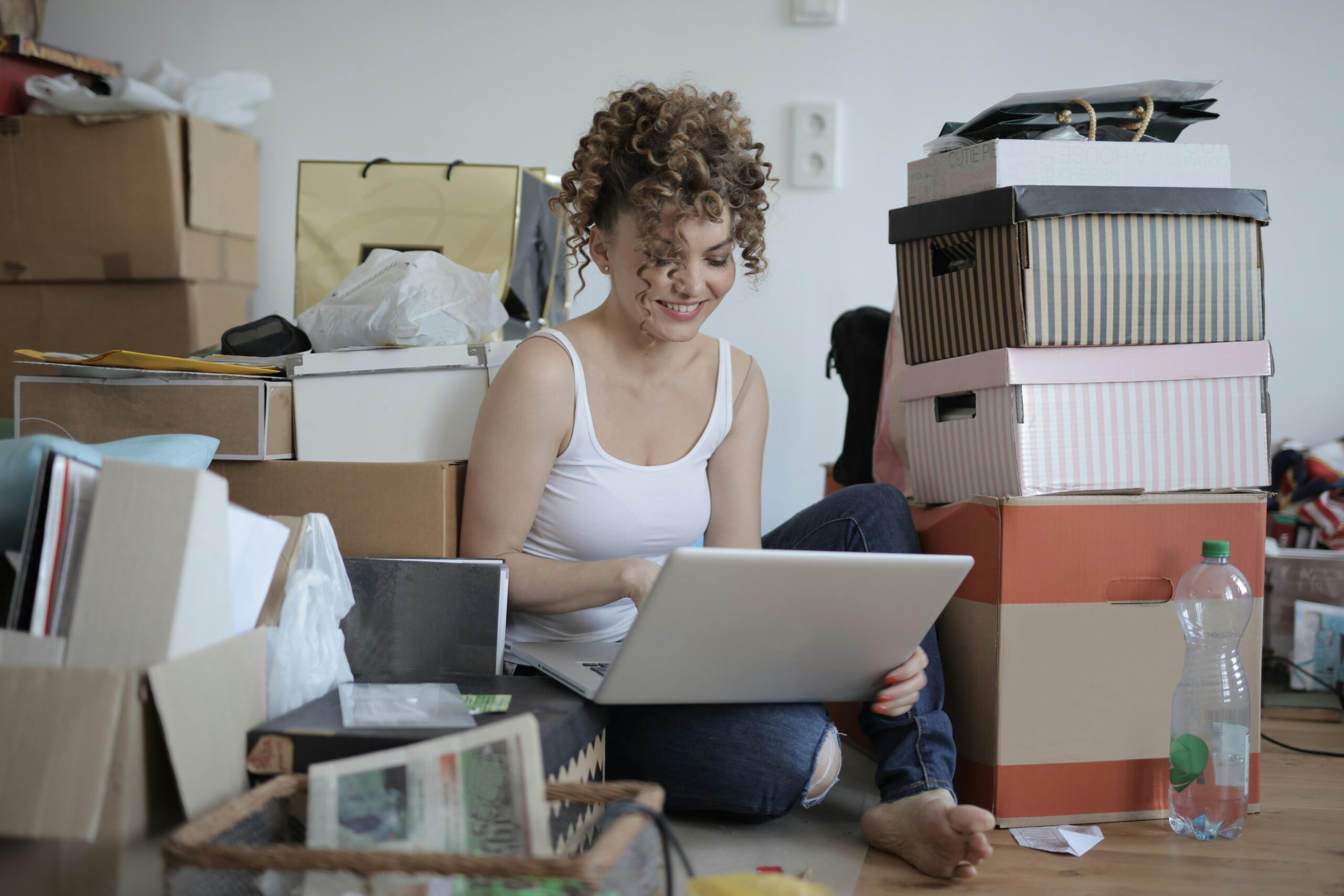Organizing your home is a great first step towards creating a more peaceful and functional living space. However, one of the biggest challenges many people face is keeping their home clutter-free after the initial organization. It’s easy to tidy up once, but without the right habits, clutter can quickly return. In this article, we’ll share practical tips on how to prevent clutter from coming back after you’ve put in the effort to organize your home.
1. Establish Daily Habits to Prevent Clutter
The best way to avoid clutter regeneration is by making small, daily habits part of your routine. These habits help keep your home organized without much effort.
- Make Your Bed Every Morning: Starting your day with a made bed can make your bedroom feel instantly tidier. This simple task helps set a positive tone for the rest of the day.
- Clean as You Go: Instead of letting dishes or clothes pile up, clean them right after use. Wash dishes, wipe counters, and put things away as soon as you’re done with them.
2. Follow the One-In-One-Out Rule
One of the most effective ways to keep your home clutter-free is by following the “one-in, one-out” rule. This rule helps control the amount of stuff entering your home.
- Be Mindful of New Purchases: For every new item you buy, donate or throw away an item you no longer need. This will keep your belongings organized and prevent them from piling up.
- Limit Sentimental Items: While it’s important to keep things that are meaningful, try to limit them. If something new comes in, consider whether it’s really necessary or if it will add value to your life.
3. Assign a Home for Everything
When everything in your home has a designated spot, it’s easier to keep things organized. This prevents clutter from accumulating in random places.
- Use Storage Bins and Baskets: Store similar items together in bins or baskets. This keeps things like toys, magazines, or shoes from spreading across your living space.
- Label Storage Areas: Label shelves, bins, or drawers so everyone in your household knows where things belong. Returning items to their rightful places becomes easier.
4. Declutter Regularly
Even after organizing, it’s important to declutter regularly. Without periodic maintenance, things can start to pile up again.
- Set a Weekly Decluttering Routine: Spend 15–20 minutes each week walking through your home and picking up anything that’s out of place. This small habit can prevent bigger messes from forming.
- Seasonal Clean-Out: Once every season, go through your closets and storage areas. Eliminate items that are of no use or required by you. This ensures you don’t hold on to unnecessary things.
5. Use Simple and Functional Furniture
Another way to prevent clutter from regenerating is by choosing furniture that helps with organization and storage.
- Furniture with Hidden Storage: Look for beds, ottomans, or couches that have hidden storage. These pieces can help you store extra items out of sight, preventing them from piling up.
- Multi-Purpose Furniture: Use more than one furniture for a single function. For example, a coffee table with storage or a sofa bed helps keep your space organized without taking up extra room.
6. Be Mindful of Paper Clutter
Paper clutter is one of the most common sources of mess in homes. Bills, receipts, and mail can quickly pile up, creating unnecessary clutter.
- Go Paperless: Whenever possible, switch to digital statements or subscriptions. This can greatly reduce the amount of paper coming into your home.
- Sort Paper Immediately: As soon as you get mail, sort it into categories: “To Read,” “To Pay,” or “To File.” Deal with it right away to prevent a pile from building up.
7. Avoid Emotional Clutter
Emotional clutter can also contribute to physical clutter. If you find it hard to part with things due to sentimental reasons, you may end up holding on to too many items.
- Let Go of Unnecessary Sentiment: Keep only the items that truly have emotional value. Let go of things that you feel obligated to keep but don’t genuinely add to your happiness.
- Digitize Memories: Instead of keeping every physical memento, consider scanning photos or recording videos. This way, you can preserve the memory without the clutter.
8. Get the Whole Family Involved
If you live with others, it’s essential to make sure everyone is on board with keeping the home organized. When everyone participates, it’s easier to maintain a clutter-free environment.
- Create Family Organization Rules: Set clear rules for where things go, and make sure everyone knows their responsibilities. Having a routine for putting things away can prevent clutter from accumulating.
- Assign Specific Tasks: If you have kids or housemates, assign specific areas for them to be responsible for, like cleaning their own rooms or putting away dishes.
9. Limit Temporary Clutter
Some items naturally create clutter in your home for short periods, like shopping bags, packages, or groceries. Limiting how long these items stay out in the open can help.
- Sort Packages Immediately: As soon as you receive a package, open it and remove all the packaging materials. Store the contents in their designated spots.
- Put Away Shopping Bags Quickly: When you bring in groceries or shopping bags, don’t leave them on counters or tables. Get everything out of sight the moment you get a chance.
Conclusion
Keeping your home clutter-free after organizing can seem challenging, but with the right habits in place, it’s completely achievable. By incorporating daily routines, using smart storage solutions, and regularly decluttering, you can prevent clutter from building back up. Remember, it’s all about making small, consistent efforts to maintain the organization you’ve worked so hard to create. With time, these habits will become second nature, and your home will stay tidy and functional for the long term.

